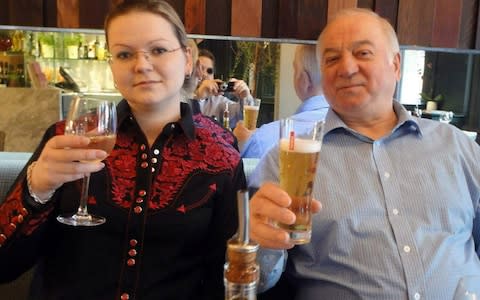Police officer poisoned by Novichok returns to work

The police officer who was left critically ill following the Salisbury nerve agent attack has returned to work.
Detective Sergeant Nick Bailey returned to active duty with the Wiltshire force 10 months after coming into contact with Novichok while investigating the poisoning of former Russian spy Sergei Skripal and his daughter Yulia.
The married father of two was one of the first officers to attend Mr Skripal's home after the 66-year-old was taken ill in the centre of Salisbury last March.
After getting the poison chemical on his hands he returned home potentially contaminating everything inside.
He was later rushed to hospital after taking ill, but was discharged around three weeks later.

Since then he has been making a slow recovery from the physical and mental effects of the experience and was recently declared fit enough to return to work.
Wiltshire Police and Crime Commissioner, Angus Macpherson said: "He's doing very well and we look forward to working with him.
"He's making a good recovery - but I suspect the mental recovery will be longer, as it would for any of us who were exposed to something as horrific as that. He will be given all the support he
needs."
Despite his recovery, Mr Bailey has lost his home and all his possessions because of fear of contamination.

The officer is believed to have come into contact with the nerve agent when he touched the Skripal's door handle, which had been contaminated by two Russian agents.
While the Skripals and Mr Bailey survived the attack, local woman, Dawn Sturgess died when she found a discarded perfume bottle which contained Novichok.
In September prosecutors issued arrest warrants for Alexander Petrov and Ruslan Boshiro, who the Met named as the two main suspects in the poisoning.
They were later revealed to suspected GRU agents, Alexander Mishkin and Colonel Anatoliy Chepiga.
But the Russian government has denied any involvement and has refused to extradite the suspects to the UK to face justice.

 Yahoo News
Yahoo News 
